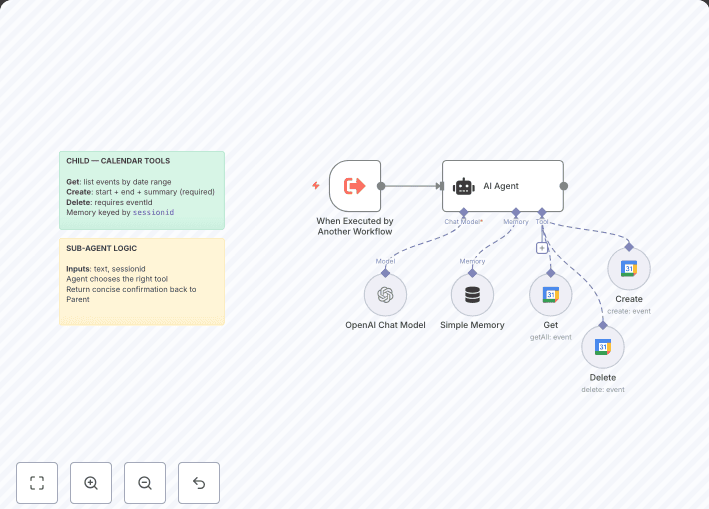This workflow automates the process of handling bug reports submitted through a form, from checking for duplicates on GitHub to logging the report and sending a notification.
1. A Bug is Reported 🐛
- Trigger: The entire process kicks off when a user submits a bug report through a JotForm. This form collects the user's name, email, and a description of the bug.
2. The AI Agent Gets to Work 🤖
- Action: The submitted bug description is sent to an AI Agent powered by Google Gemini.
- Intelligence: The agent has a clear set of instructions:
- Check for Duplicates: It first connects to a specific GitHub repository (
iamvaar-dev/pomodoro-timer) and checks if an issue matching the bug description already exists.
- Create a New Issue: If it's a new bug (not found on GitHub), the agent automatically creates a new issue in the repository.
- Report Back: The agent then neatly packages its findings into a structured JSON format, noting the issue's details and whether it was already present on GitHub.
3. Log Everything in Google Sheets 📝
- Action: The information from the JotForm submission and the AI Agent's analysis is sent to a Google Sheet.
- Purpose: This step creates a clean log of all submitted bugs, including who submitted them and whether a new GitHub issue was created for them.
4. Prepare a Smart Notification 📣
- Action: A small piece of JavaScript code runs to create a custom notification message.
- Logic: The message is dynamic:
- If the bug was already on GitHub , the message will say something like, "An issue was submitted, but it's already reported. No action is needed." ✅
- If the bug was new , the message will be more urgent, like, "A new bug was reported and an issue has been created on GitHub. Please review it." ❗
5. Send the Alert via Telegram 📲
- Final Step: The custom message created in the previous step is sent to a specific Telegram chat using a bot. This instantly notifies the relevant people about the new bug report and what action (if any) is required.


